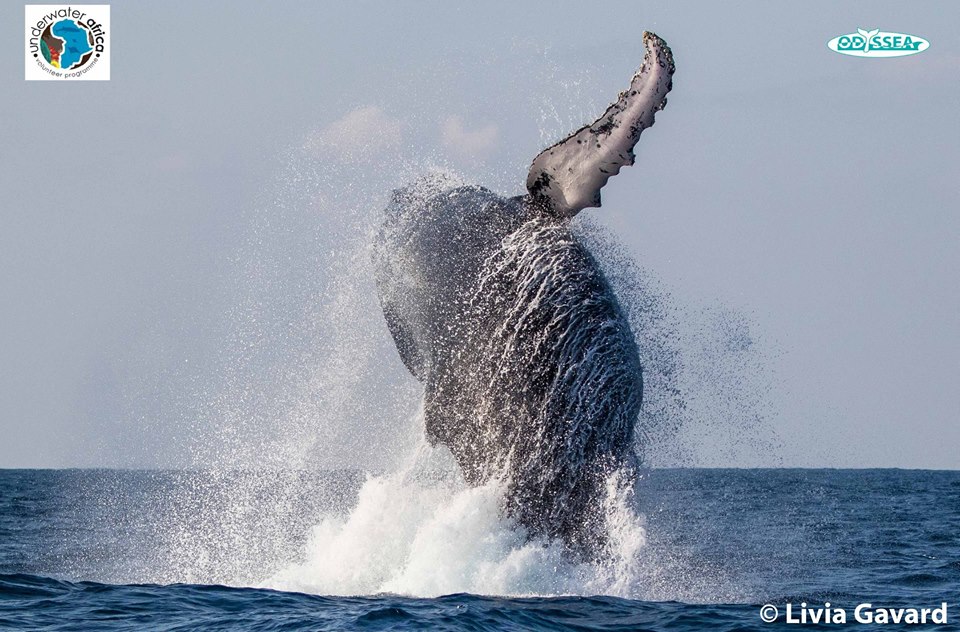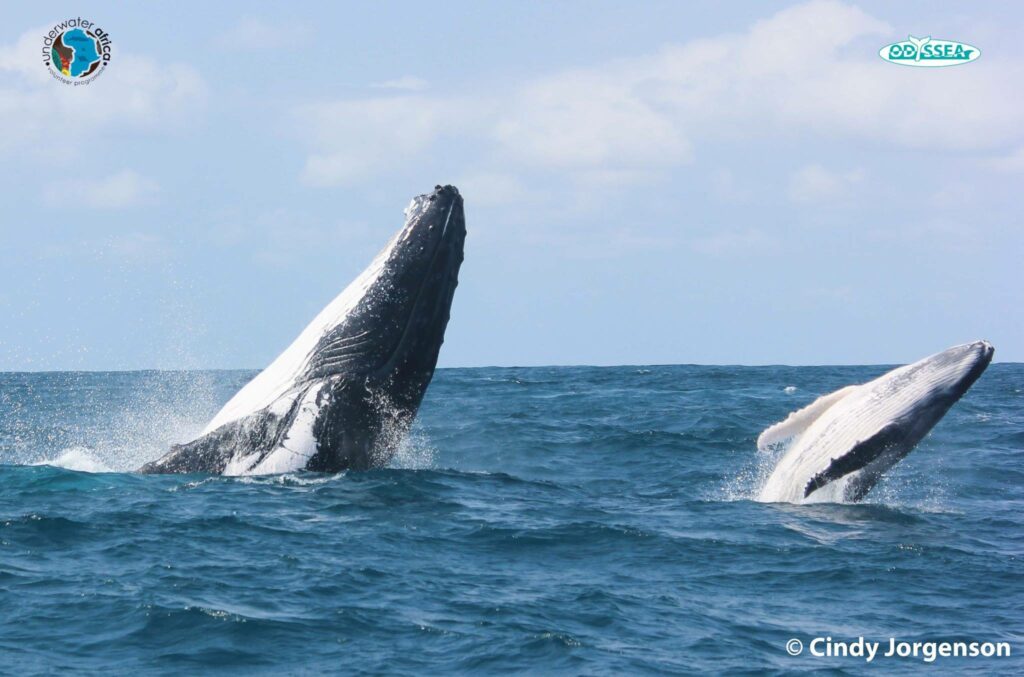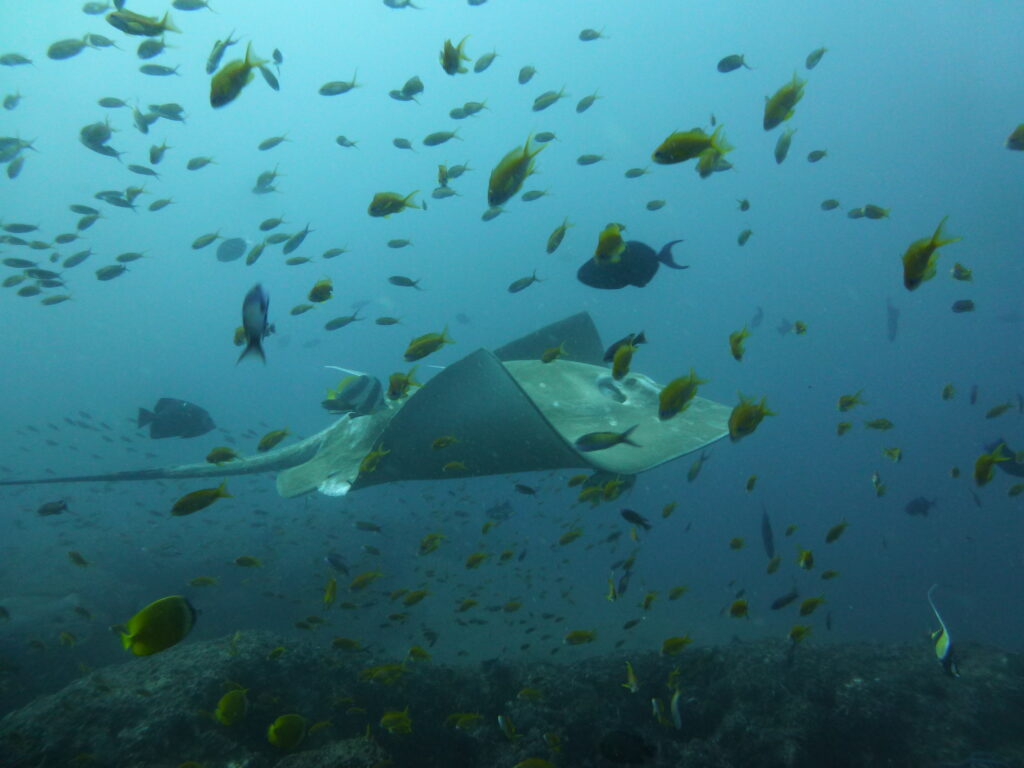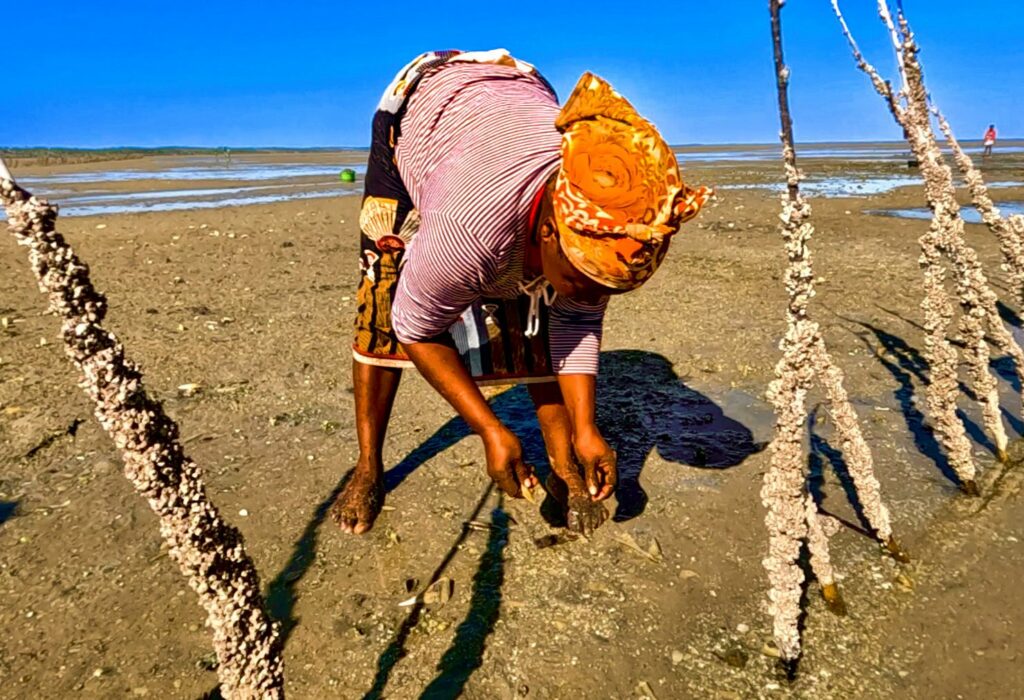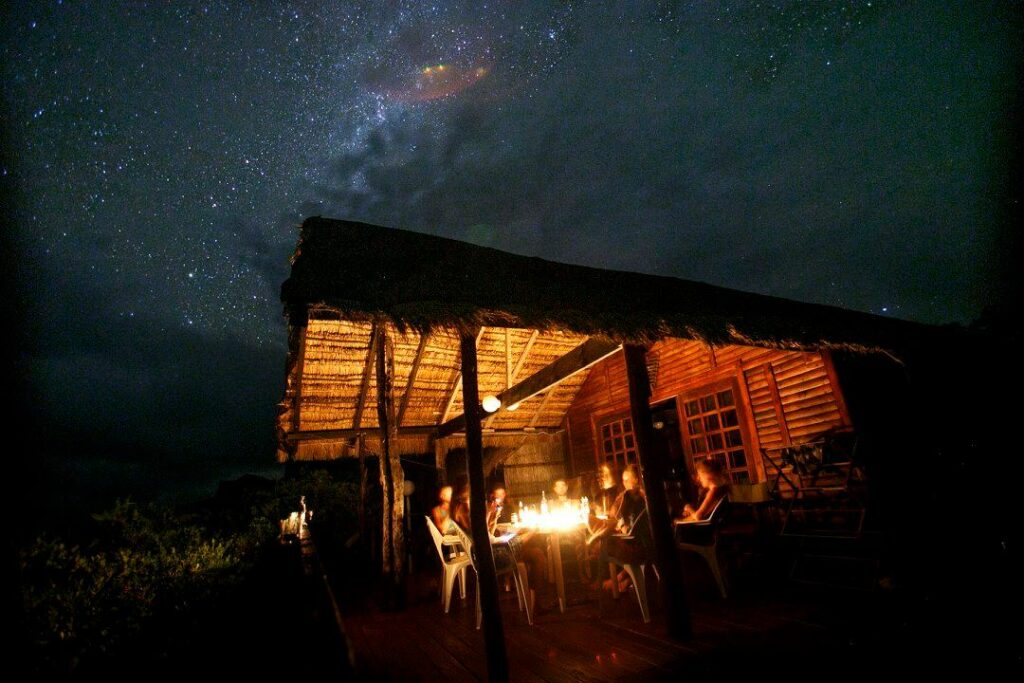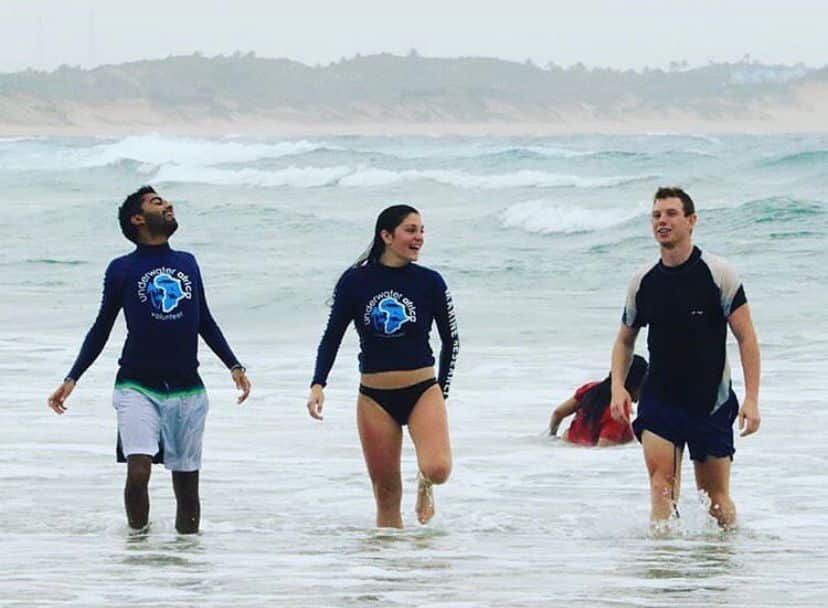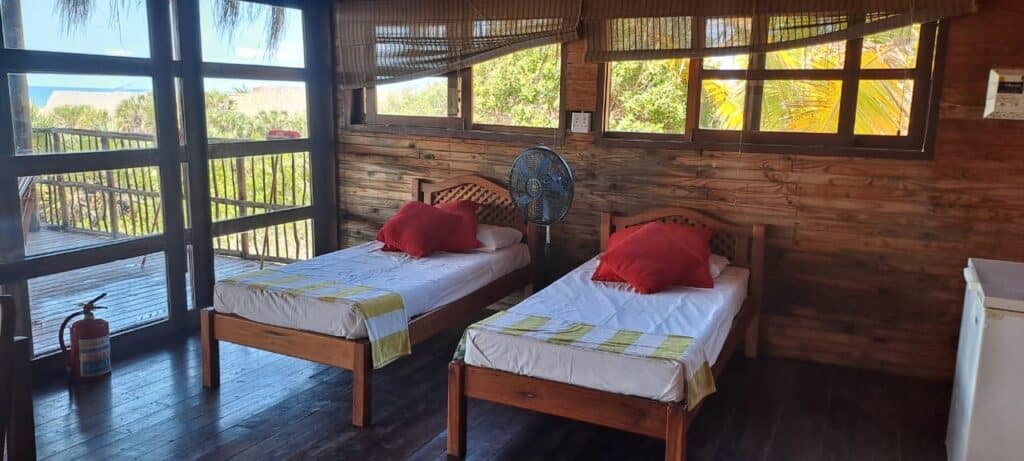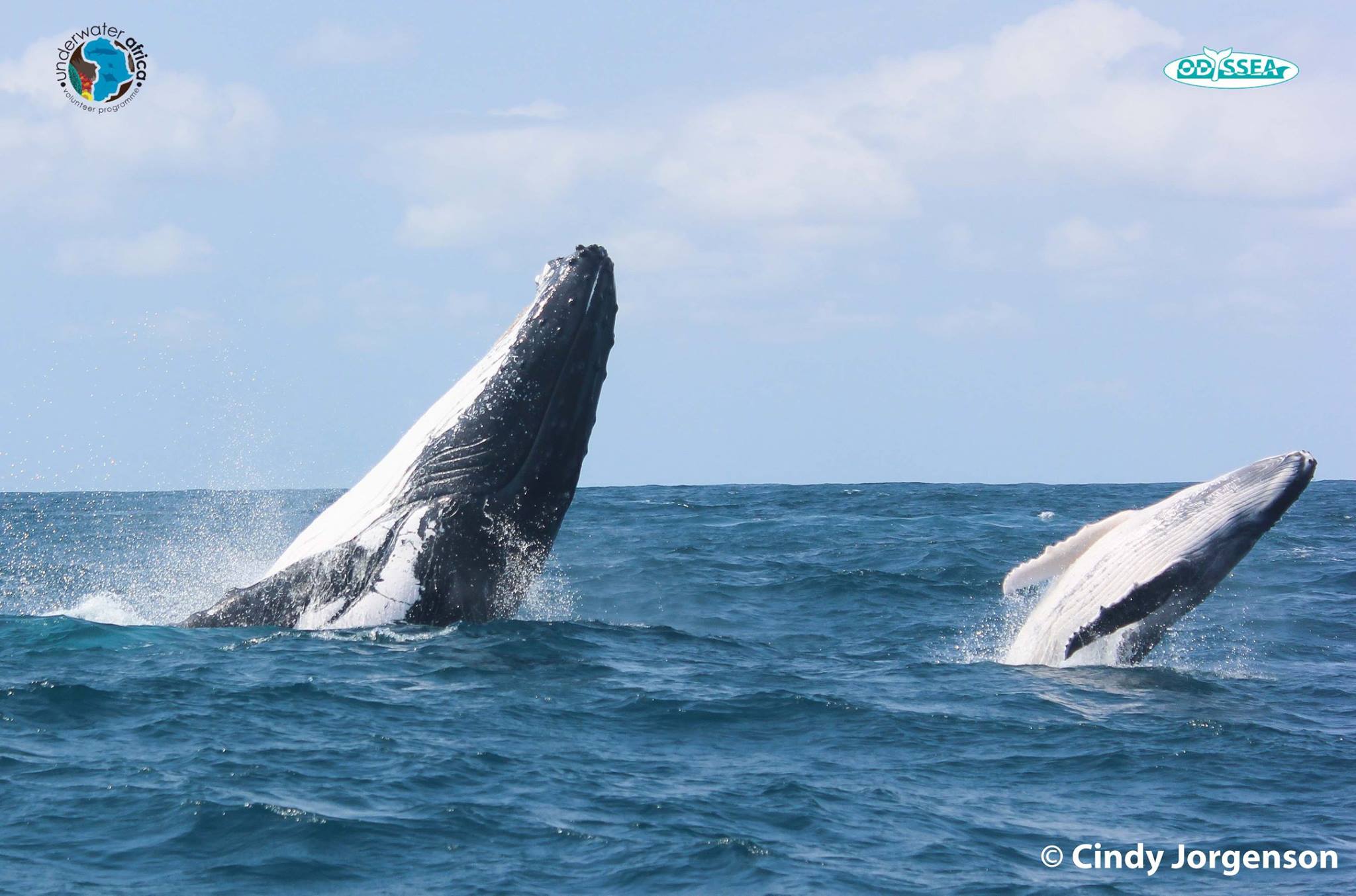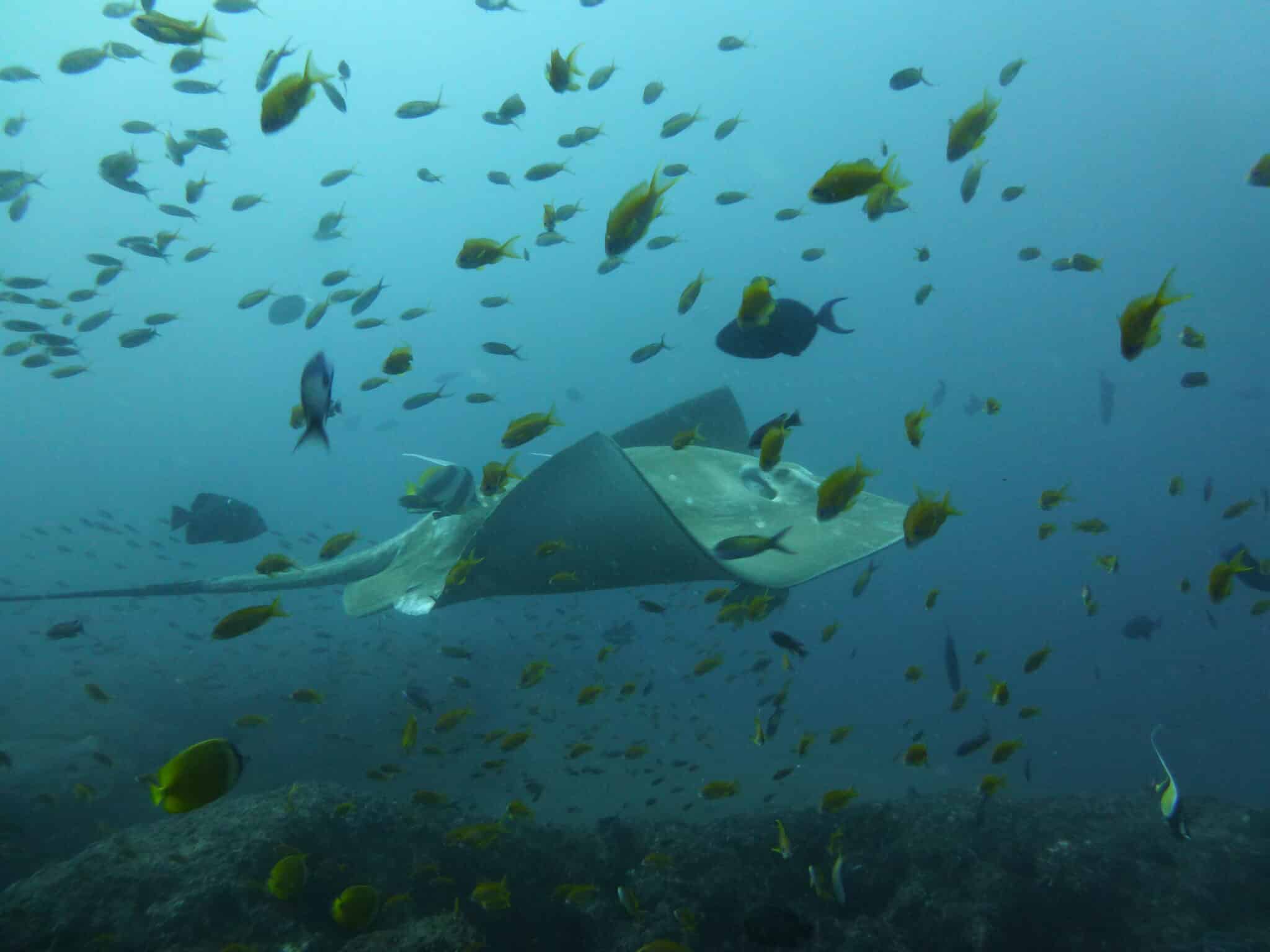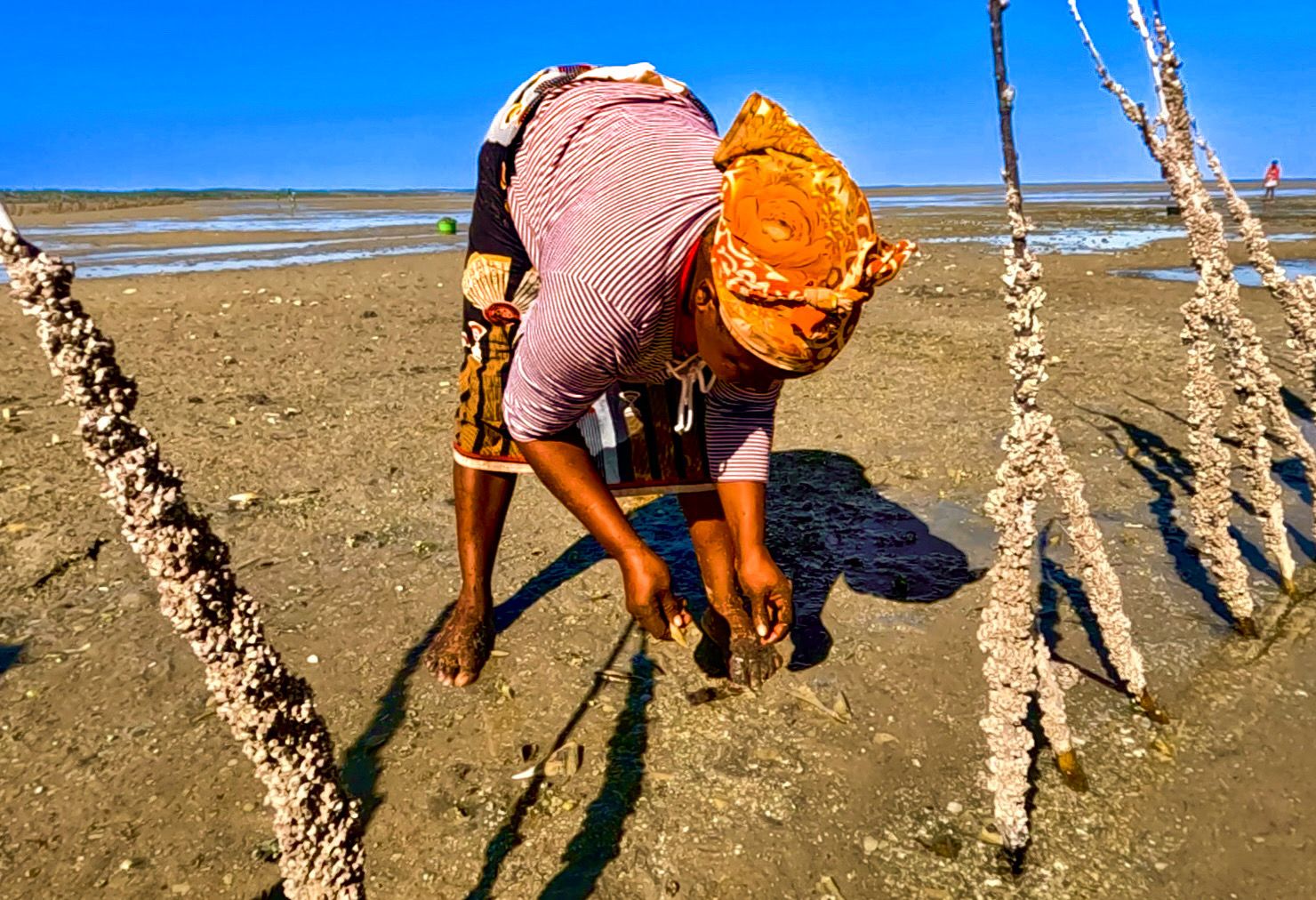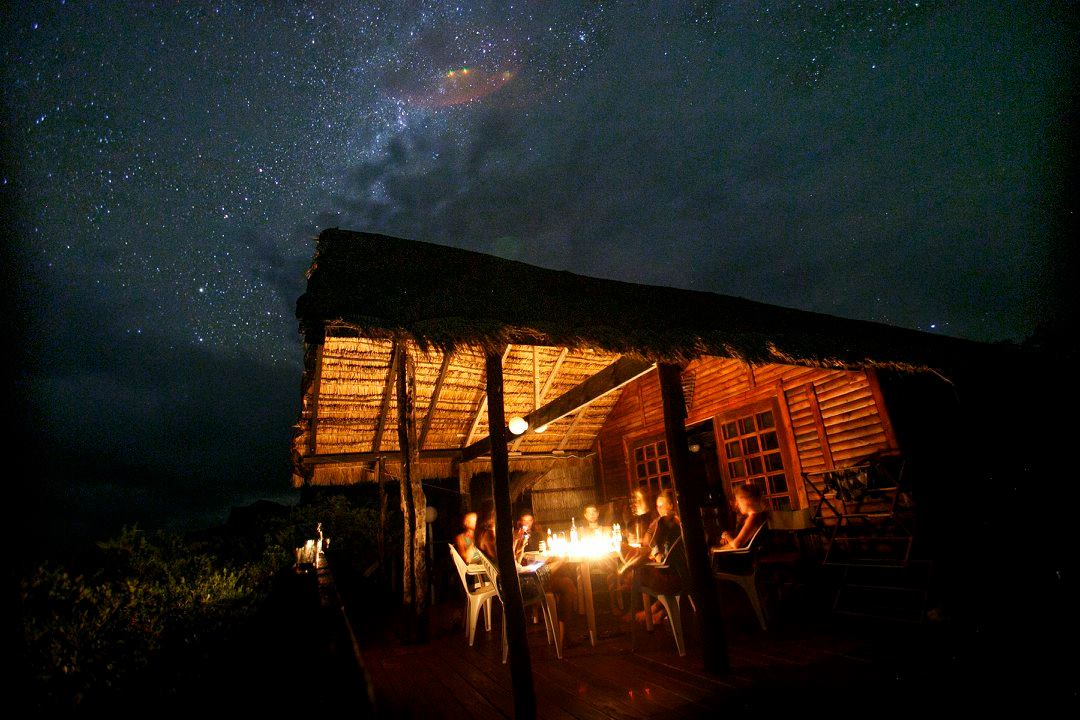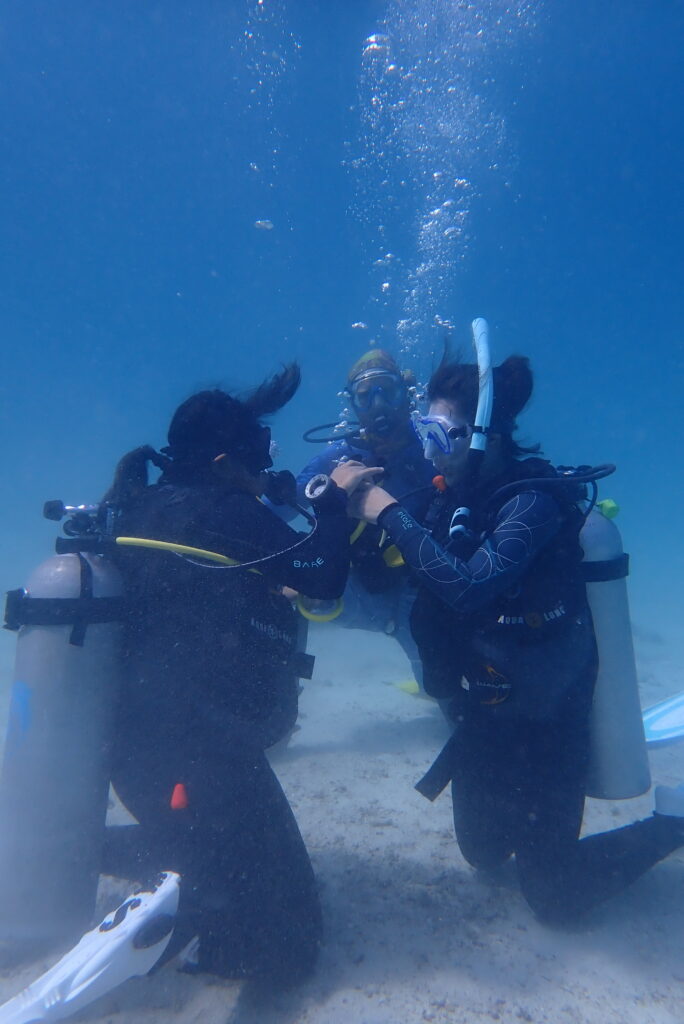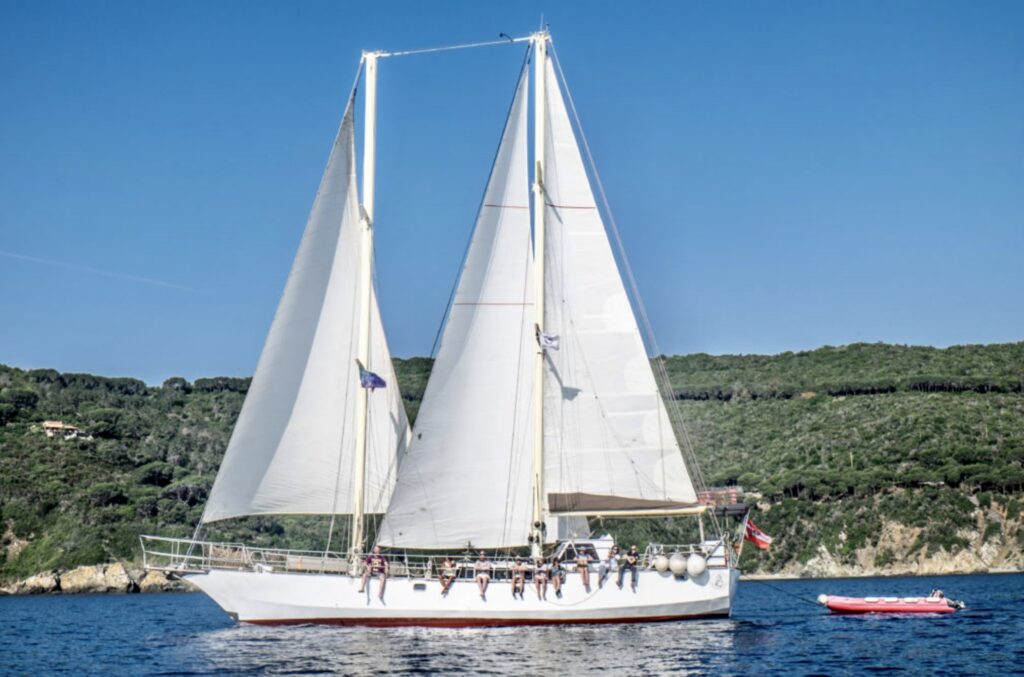Explorez la cote sud-ouest du Mozambique lors d’un voyage éco participatif pour l’étude et la protection de la méga faune marine. Séjour éco touristique ouvert aux plongeurs et aux non plongeurs. Toutes les missions cétacés ici
Étude de la biologie marine à Tofo au Mozambique
L’organisation dans laquelle vous serez engagée porte un programme de recherche et de conservation marine dans le village de Tofo, au Mozambique. Ce programme a été créé par un scientifique en biologie marine afin de récolter un maximum de données sur la biodiversité de la côte Est de l’Afrique. Le Mozambique est en effet doté d’un écosystème marin particulièrement riche. Toutefois, sa méga faune marine est en danger. Les scientifiques de l’organisme partenaire étudient les espèces menacées des récifs côtiers du Mozambique depuis plusieurs années et mènent une politique de sensibilisation à l’environnement.
Les recherches des scientifiques portent sur
L’écologie des récifs coralliens
Un récif corallien en bonne santé accueille une plus grande variété d’espèces de coraux et de poissons qu’un récif endommagé. Les scientifiques du programme travaillent à l’aide de caméras pour évaluer la variété de poissons qui habitent dans le récif. Ce projet réunira, dans quelques années, suffisamment de données pour mettre en place un suivi fiable de la santé des récifs coralliens. Les récifs de Tofo forment un écosystème très riche propice au développement d’espèces comme les requins-baleines, les tortues marines, le requins de récifs et les différentes espèces de raies. L’objectif des chercheurs est également de collecter des données sur cette faune marine pour améliorer les pratiques de conservation. Grâce aux informations recueillies ces dernières années, ils commencent à comprendre comment cette faune marine s’intègrent dans les écosystèmes du Mozambique.
L’étude et la conservation des requins
Il n’existe que très peu de données sur les requins du Mozambique. Les scientifiques du centre de recherche étudient la niche écologique des différentes espèces de requins de la région. À ce jour, 22 requins sont suivis le long de la côte d’Inhambane et dans la zone du parc national de l’archipel de Bazaruto.
Les baleines
Les eaux du sud du Mozambique sont le lieu de reproduction d’un grand nombre de baleines à bosse. De juin à octobre, des milliers de baleines à bosse viennent près des côtes pour s’accoupler, mettre bas et allaiter leurs baleineaux. Elles se prélassent dans les eaux chaudes du Mozambique avant de retourner en Antarctique. Les scientifiques étudient le comportement des baleines, leur distribution et leur communication, dans le but de promouvoir leur conservation.
L’action des volontaires au Mozambique
Quelques années après le début du projet, les chercheurs l’association partenaire ont décidé d’ouvrir leurs programmes à des volontaires, afin de partager leur passion et augmenter le nombre de données marines récoltées. L’équipe dispose d’une station de recherche de terrain dans le village de pêcheurs de Tofo, dans la province d’Inhambane, au sud du Mozambique. La station est équipée d’un laboratoire scientifique, d’un bureau et d’une bibliothèque. Les volontaires ont l’a possibilité de travailler sur différents projets en fonction de la saison et des sujets sur lesquels les scientifiques travaillent.
De juin à septembre, volontaire pour l’étude des baleines
Pendant la saison des baleines, vous accompagneriez les chercheurs pour étudier les cétacés. Vous sortirez en mer observer les baleines à bosse et serez initié aux différentes techniques de recherche : photo-identification et enregistrements acoustiques de leurs chants. Après chaque sortie, vous traiterez les données récoltées pour en comprendre le sens. Vous assisterez également à des conférences sur la biologie, l’anatomie, la physiologie, les pathologies, l’acoustique… Vous croiserez également d’autres espèces comme les requins-baleines, les raies manta, les dauphins…
Les observations des baleines se déroulent également depuis la terre.
Volontaire pour la méga faune marine : toute l’année
Les missions d’écovolontariat pour la mega faune marine se déroulent en plongée. Si vous ne savez pas plonger, vous avez la possibilité de passer les premiers niveaux sur place.
Vous participerez à différents programmes de recherche sur la méga faune marine, en fonction du travail des biologistes sur place. Votre action pourra concerner les raies manta, le requin baleine, les requins ou les tortues.
Pour chaque espèce pour procèderez à
- La photo identification
- L’observation des comportements
- L’évaluation de la santé d’une population
- L’observation des population, notamment de requin baleine, par drône pour étudier leur interaction avec les touristes.
Auprès des requins vous
Aiderez au prélèvement d’échantillons de tissus et de données biométriques sur les poissons capturés.
Préparez l’équipement pour la procédure de marquage.
Auprès des requins baleines vous
- Pratiquerez à leur identification par photo
- Collecterez de nombreuses informations sur la localisation GPS, les conditions environnementales, la ségrégation, le sexe, le comportement et les caractéristiques spéciales telles que les cicatrices.
- Contribuer à l’analyse des données scientifiques en étroite collaboration avec les scientifiques du projet.
- Observerez les interactions entre requin baleine et touriste par drone.
Pour l’étude des récifs coralliens vous
- Pratiquerez la photo identification pdes tortues de mer, des requins et des raies.
- Surveillerez les stations de nettoyage des récifs
- Évaluation de l’état de santé des individus
- Observation des comportements
- Identification des habitats clés
Gestion des pièges à caméra
L’installation d’appareils photos sous marins augmente les possibilités d’observation. Grâce aux images capturées, les scientifiques peuvent comprendre comment les poissons utilisent réellement un récif lorsqu’ils ne sont pas dérangés par les plongeurs. Vous contribuerez à
- La récupération des piège à caméra
- L’entretient de l’équipement
- L’ Analyse des images pour détecter la présence d’espèces menacées…
Ecovolontaire avec les baleines
2 semaines : 1899 GBP soit 2 279 € (varie en fonction du taux de change)
3 semaines : 2399 GBP ; 2880 € (varie en fonction du taux de change)
4 semaines : 2899 GBP ; 3479 € (varie en fonction du taux de change)
Inclus dans le tarif
- Transfert depuis Inhambane airport
- Logement partagé
- 3 repas par jour
- Sorties en bateau pour l’observation des baleines
- Recherche à terre
- Analyse des données scientifiques
- Discussions sur la biologie marine
- Travail quotidien sur la plage
- Sensibilisation de la communauté
Non inclus dans le tarif
- Assurance voyage
- Billet d’avion
- Effets personnels
- Visa
Ecovolontaire plongée pour l’écosystème marin
Pour les non plongeurs
- 2 semaines : 2299 GBP ; soit 2759 € (varie en fonction du taux de change) avec 1 cours de plongée PADI (Open Water OR Advanced) – 2399 GBP ; soit 2880 € (varie en fonction du taux de change)Avec la certification PADI Adventure Deep
- 3 semaines : 2999 GBP ; soit 3600 € (varie en fonction du taux de change) Avec 1 cours de plongée PADI (Open Water OU Advanced) – 3099 GBP ; soit 3720 € (varie en fonction du taux de change) avec la certification PADI Adventure Deep
- 4 semaines : 3599 GBP soit 4320 € (varie en fonction du taux de change) avec 1 cours de plongée PADI (Open Water OU Advanced) – 3699 GBP soit 4441 € (varie en fonction du taux de change) avec la certification PADI Adventure Deep
Pour plongeurs
- 2 semaines : 2199 GBP soit 2640 € (varie en fonction du taux de change) avec la certification PADI Adventure Deep et la location d’équipement
- 3 semaines : 2899 GBP soit 3480 € (varie en fonction du taux de change) avec la certification PADI Adventure Deep et la location d’équipement
- 4 semaines : 3499 GBP soit 42001 € (varie en fonction du taux de change) avec la certification PADI Adventure Deep et la location d’équipement
- Minimum 12 semaines et certification PADI Advanced : 7999 GBP soit 9603 € (varie en fonction du taux de change) Stage PADI Divemaster avec les cours Rescue Diver, EFR et Divemaster
Inclus dans le tarif
- Transfert depuis Inhambane airport
- Logement partagé
- 3 repas par jour
- Déplacement en bateau
- Analyse des données scientifiques
- Discussions sur la biologie marine
- Travail quotidien sur la plage
- Sensibilisation de la communauté
- 4 plongées par semaine, y compris la location de l’équipement
- Si vous avez réservé en tant que non-plongeur : Cours de plongée PADI Open Water (ou qualifications ultérieures).
Non inclus
- Assurance voyage
- Billet d’avion
- Effets personnels
- Visa
Les prix peuvent varier en fonction du cours de change
- A partir de 18 ans
- Minimum 2 semaines
- Plongeur ou non plongeur
Logement
Vous logerez au lodge White Sands. Les coordinateurs du projet résident dans le même lodge et sont toujours heureux de vous aider, ainsi que le personnel du lodge. Vous serez en chambre chambres (2 personnes par chambre) les salles de bains sont également partagées. Chaque maison dispose d’un espace commun. Des paniers à linge sont fournis dans les salles de bain et la lessive est faite deux fois par semaine.
Nourriture
Trois repas par jour sont fournis, préparés par le chef cuisinier. Le dimanche les volontaires préparent leur nourriture.
Arrivée
Arrivée à l’aéroport de Inhambane où u membre de l’équipe peut venir vous chercher.
Le centre de recherche dispose d’un jardin avec piscine, de deux bateaux et… de planches de surf, de kitesurf et de surfski que vous pouvez utiliser pendant votre temps libre
La maison des volontaires offre la meilleure vue sur la baie de Tofo ! Située à deux pas de la plage, vous vous détendrez tout en profitant du coucher de soleil !
Tous les avis sur Underwater Africa
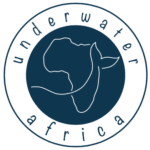
A propos de l’organisme partenaire
Underwater Africa est une organisation anglaise créée par Calun, un scientifique en biologie marine. Après quelques années de recherche sur la faune marine sur la côte du Mozambique, l’équipe a décidé de partager sa passion en permettant à des éco volontaires de les rejoindre. Une initiative qui permet aux voyageurs de s’engager dans une action solidaire et à Underwater Africa de collecter de multiples données sur la faune et la flore marine.

